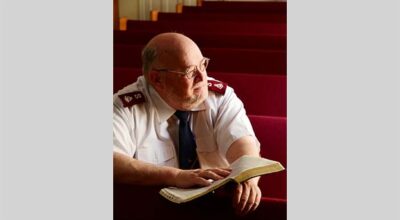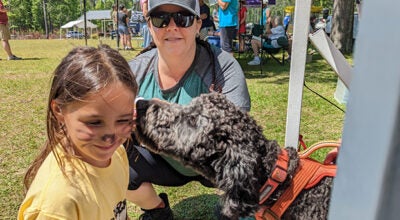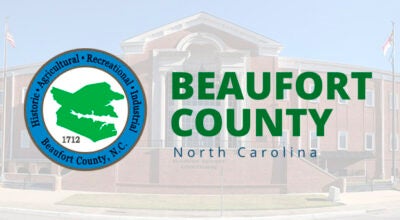A faithful source for Parkinson’s support
Published 8:31 pm Thursday, March 8, 2012
Three years ago, the Rev. Danny Allen of Washington’s First United Methodist Church was diagnosed with Parkinson’s disease, a degenerative disorder of the central nervous system.
There is no rulebook for how to go through life with Parkinson’s disease. Although information on the disease and its treatment options are available through doctors, scholarly resources and the Internet, that’s not always enough. Allen points out: “My doctor knows everything except what it’s like to have it.”

Diagnosed with Parkinson’s disease three years ago, the Rev. Danny Allen of the First United Methodist Church of Washington was the catalyst to bring people together in a Parkinson’s disease support group. (WDN Photo/Keith Mason Jr.)
That is one of the reasons he decided to organize a local support group for people with Parkinson’s disease and their family, friends and caregivers.
“When I got diagnosed, I had my ears perk up about hearing other folks diagnosed with it, and it appeared to me that there was an increasing number of people,” Allen said. “The more I heard about people being diagnosed with it or having to live with it, the more I thought, ‘We’ve got support groups for grief. We’ve got support groups for cancer victims. We’ve got support groups for families in different crises, but I didn’t hear of anything being done around our area for the disease I’d been diagnosed with.’”
Allen managed to find support groups in Greenville and New Bern. He contacted the one in Greenville for advice about starting one. He spoke to several Washington residents with Parkinson’s disease, and there seemed to be enough interest to warrant starting a group, so he began organizing it.
The first meeting was set to last an hour, but after an hour and a half, it showed no signs of ending. The people attending were too busy trading advice and sharing experiences to go home. There was lots of encouragement, too.
“I was surprised after our first meeting. I think all of us felt stronger … not so alone,” Allen stated.
The attendees were able to compare the medications and treatments they are taking and see how well they are working. Hearing those kinds of things from a doctor is one thing, Allen said, but hearing it from a patient is much more encouraging. In this way, they serve as a “sounding board” for each other and may potentially go to their next doctor’s visit more informed.
Parkinson’s disease may become extremely debilitating, which is frightening to many patients.
“A lot of emotion runs through there. The support group helps deal with that — the emotional side of the disease,” Allen said.
The members help hold each other up and draw strength from one another, he explained. He struggled for words to convey the sense of deep and instant community that they felt amongst each other.
While faith may not be the central focus of this support group, Allen asserted that it’s woven throughout all they do. He said this of the group: “It utilizes the directive of faith to look after the weaker brethren … to do unto others as you would have them do unto you (the Golden Rule is still scripture), to share hope, which is what Jesus over and over did. It’s to give help, even if it’s just a shoulder to cry on, which is the Good Samaritan story. Faith is woven all through it; it’s just not waved on a flag. If you didn’t care about your neighbor — you didn’t care about your brother or sister — there’d be no support groups anywhere.”
The support group has met twice so far, but it plans on continuing to meet as long as interest exists. The group is in its early stages and trying to figure out how best to operate.
“None of us have the expertise to go out and line up 12 programs for the next year. We’re gonna have to learn from the other groups. Who you get? Where you get them? What do you do? What is needed? What is helpful?” Allen said.
To find some answers, they’ve decided to attend a meeting at a nearby support group one month.
So far, eight people have been attending group meetings. Of those eight, three have the disease and five are caregivers. Some are members of First United Methodist Church, but others are not. Allen has not wanted to do any individual “recruiting” for the group, but he would like for the word to get out that the support group is available to all interested parties with ties to Parkinson’s disease, regardless of church affiliation.
The group meets at 7 p.m. the third Monday of each month in the Asbury Conference Room of Allen’s church.





